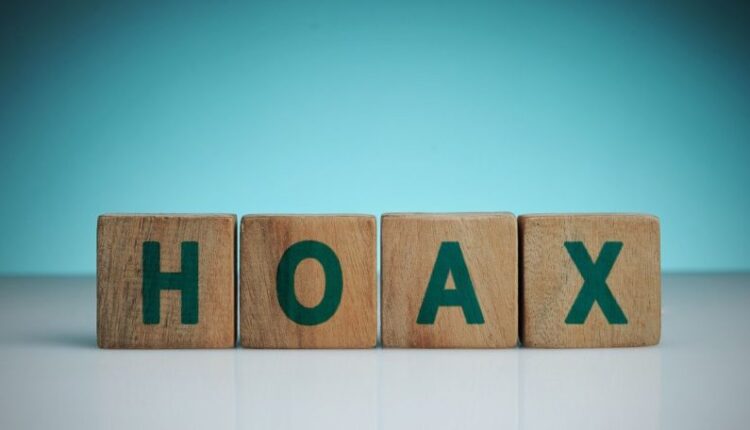Beware of Disinformation and Hoaxes for the 2024 Election
Ahead of the 2024 election, the public is asked to be wary of the circulation of hoaxes and disinformation. The reason is because there is more and more hoax content on social media, especially during the campaign period. Don’t let anyone fall for hoaxes and then dislike government programs, including elections. The public is asked to be more careful so as not to be taken in by hoax content.
Hoaxes are fake news or images that are deliberately spread for certain purposes. Meanwhile, disinformation is content on social media that contains wrong information, which is deliberately created to make people feel emotional. Usually hoaxes are created by political buzzer teams in order to overthrow their opponents ( black campaign).
One example of disinformation is when there is content that has a narrative that the 2024 presidential election (presidential election) was canceled and postponed until 2024. To strengthen the narrative, there are photos of former president the late Abdurrahman Wahid (Gus Dur) and several national figures.
The claim that the 2024 presidential election is canceled or postponed until 2029 is not true. The General Election Commission (KPU) is only planning to postpone the 2024 simultaneous Regional Head Elections (Pilkada), not the Presidential Election. There is also a hoax video circulating in cyberspace which states that the results of the 2024 election have been circulated. The video shows ballot papers piled up in piles.
The claim that the 2024 Election results have been prepared by the KPU is false. KPU Chairman Hasyim Asy’ari emphasized that the viral video was unreasonable and made up. Meanwhile, the 2024 election will only be held in February 2024. Currently, the KPU is still carrying out a number of stages towards the 2024 elections.
The public is asked to be wary of the circulation of hoaxes and disinformation in cyberspace. Even though the campaign period has not yet started, hoaxes and disinformation are starting to emerge. Hoaxes are very dangerous because they can threaten the success of the 2024 elections.
The danger of disinformation and hoaxes is that they can influence people’s thinking. When they read hoax content, they will be carried away by emotions so they will not like government programs, including elections. If this is the case, it will increase the abstention rate (white group) and thwart the 2024 elections.
Apart from that, hoaxes and disinformation can trigger riots, which could also threaten the success of the 2024 elections. When disinformation floods cyberspace, people are easily provoked. They can be invited to demonstrate against the election and then there is chaos, so that the task of the authorities will be even harder because they are securing the election procession, as well as preventing riots that endanger the lives of other people.
Therefore, the public is asked to avoid disinformation and hoaxes in cyberspace. There needs to be a literacy movement on social media so that no one is trapped in disinformation and hoaxes on social media.
Society is fighting against the bad habits of Indonesians whose literacy level is very low, meaning they don’t like to read, even just deducing it from news headlines. When many people only read the title, it is dangerous because they are caught in a hoax, because fake news has very different titles and content.
There needs to be a campaign to increase internet literacy. The anti-hoax literacy movement campaign can be started from the immediate environment. Residents teach people around them to learn to differentiate between hoax news, disinformation and valid content. Then, if there is a hoax, you can immediately report it to the cyber police to investigate the case.
Meanwhile, member of Bawaslu (Election Supervisory Body) Herwyn JH Malonda predicts that the peak spread of hoaxes on social media will occur in February 2024. This reflects the phenomenon that occurred in 2019, where the peak of hoaxes occurred in April before the voting stage.
To anticipate this, Herwyn explained that Bawaslu had taken precautions by carrying out media monitoring as well as publishing massive electoral information and education so that the rise of hoax information could be suppressed with truthful news.
Bawaslu also collaborates with related stakeholders such as the Ministry of Communication and Information, social media platforms, media and content creators, and also forms a campaign monitoring task force with KPI, KPU and the Press Council.
Cooperation is needed to fight disinformation and hoaxes, the aim is to make the 2024 election process a success. The government is not alone because there is mutual cooperation with the KPU, Bawalsu and other parties. Meanwhile, the public is asked not to believe the hoaxes and disinformation that often appear on social media.
To make the 2024 election a success, the public is advised to be more careful in reading the news. Don’t let them get caught up in hoaxes, propaganda and disinformation in cyberspace. There needs to be education to differentiate between disinformation and valid news. Then, the public is also expected to actively participate in reporting hoax content so that its circulation does not increase.
